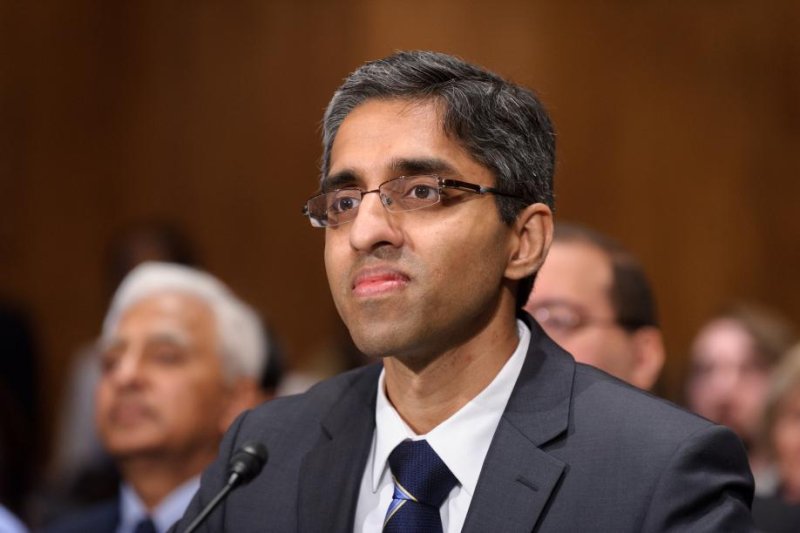Negative stigmas on drug and alcohol addiction prevent many individuals from seeking treatment, says US. Surgeon General Vivek Murthy. Photo courtesy of U.S. Senate Committee on Health, Education, Labor and Pensions
WASHINGTON, Nov. 17 (UPI) -- Substance abuse and addiction is the most pressing health problem facing the United States, U.S. Surgeon General Dr. Vivek Murthy said Thursday in a report.
In a statement explaining the report, the nation's top doctor noted that approximately 21 million Americans have substance abuse disorders involving alcohol or other drugs, a higher number than people with all types of cancer combined.
"Alcohol and drug addiction take an enormous toll on individuals, families, and communities," Murthy said in a press release. "Most Americans know someone who has been touched by an alcohol or a drug use disorder. Yet 90 percent of people with a substance use disorder are not getting treatment. That has to change."
The issue marks the first time the Surgeon General has dedicated a report to substance abuse and related disorders. The paper, called "Facing Addiction in America: The Surgeon General's Report on Alcohol, Drugs, and Health," targets alcohol, illicit drugs and prescription drugs. The author contends that 1 in 7 people have some kind of substance abuse disorder, though only 1 in 10 of those people receive treatment. The Surgeon General explains young adults are most at risk.
"Although substance misuse problems and use disorders may occur at any age, adolescence and young adulthood are particularly critical at-risk periods," Murthy added. "Preventing or even simply delaying young people from trying substances is important to reducing the likelihood of a use disorder later in life."
The report goes on to recommend a change in the way Americans view addiction-related disorders, and encourages affected individuals to seek treatment.
On Wednesday, the U.S. Department of Health and Human Services expanded access to medication-assisted treatment for opioid use disorders by allowing nurse practitioners and physician assistants to immediately begin taking the 24 hours of required training to prescribe buprenorphine, the treatment for opioid use disorder.
"It's time to change how we view addiction," Murthy continued. "Not as a moral failing but as a chronic illness that must be treated with skill, urgency and compassion. The way we address this crisis is a test for America."















